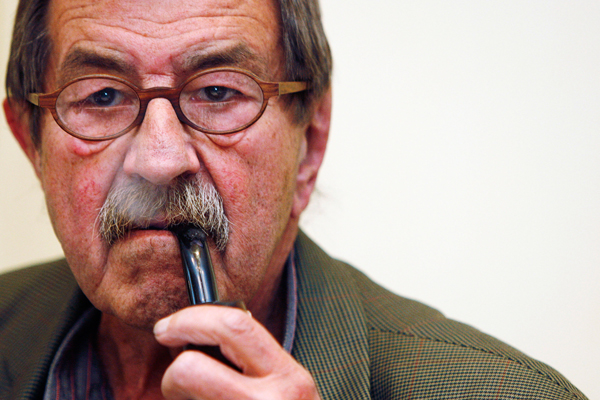
Nobel Prize-winning author Gunter Grass, whose writings explored the Nazi era brutality and the suffering Germany endured post World War II, died on Monday. He was 87.
He died in a clinic in Luebeck in Germany, according to a statement on his publisher Steidl Verlag's Twitter feed.
Grass, who wrote novels such as "The Tin Drum" and "Cat and Mouse", won the Nobel in 1999.
The Swedish academy, while presenting him the Nobel for "The Tin Drum", praised the author for "the enormous task of reviewing contemporary history by recalling the disavowed and the forgotten: the victims, the losers and lies that people wanted to forget because they had once believed in them."
Grass, who was a novelist, poet, playwright and sculptor, courted major criticism with his prose-poem entitled "What Must Be Said", published in 2012. It spoke about the fear that nuclear-armed Israel could mount a "first strike" against Iran.
The 'Literary lion' remained defiant in the face of the criticism, however, admitted that he was hurt at being accused of being anti-Semitic.
Here we have complied some of the top Gunter Grass quotes:
Even bad books are books and therefore sacred."
The job of a citizen is to keep his mouth open."
Whenever there has been talk of exterminating rats, others, who were not rats, have been exterminated."
If work and leisure are soon to be subordinated to this one utopian principle -- absolute busyness -- then utopia and melancholy will come to coincide: an age without conflict will dawn, perpetually busy -- and without consciousness."
I did not volunteer for the Waffen SS, but was, as were thousands of my year group, conscripted. I did not then know as a 17-year-old that it was a criminal unit. I thought it was an elite unit."
Everyone is born into a certain era. I wouldn't want to see anyone faced with the circumstances that prevailed at the time, when there were few or no alternatives."
I belonged to the generation that grew up under National Socialism, and was blinded and led astray - and allowed itself to be led astray.
Even if surrounded with explanations, Auschwitz can never be grasped.
I shall speak of ... how melancholy and utopia preclude one another. How they fertilize one another ... Of the revulsion that follows one insight and precedes the next ... Of superabundance and surfeit. Of stasis and progress. And of myself, for whom melancholy and utopia are heads and tails of the same coin.

















